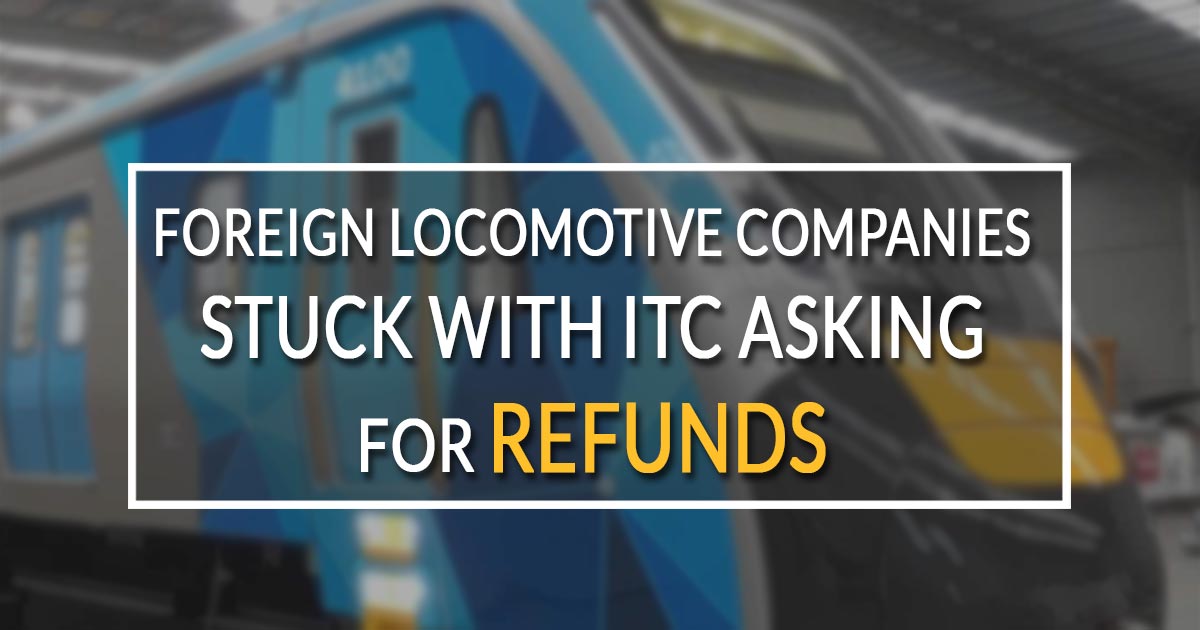
Global locomotive maker which have put billions of dollars for Make in India programme of the government railways such as Alstom, Bombardier, and GE has sought to influence the finance ministry for the challenges faced under the new Indirect tax regime. The companies are encountered with stacked up input tax credit of railway by the government’s restriction under GST. Due to some cases, most inputs is liable to pay GST at 18% or 28%, however, Railway locomotives are responsible to pay at the GST rate of 5%, the situation is creating a scenario of an inverted duty structure.
Generally, inverted duty structure case allows the refund of input GST up to an extent. When it comes to railways, these refunds are particularly limited.
They are expecting the extension to the fabric industry currently has provided relief. The companies have not provided an estimate of the amount to put in it.
The companies can forward the additional input tax to the balance sheets but even doing this will not dissolve the problem. The businesses who have other businesses as well can adjust the input tax but others which only have business in sale and production of locomotives do not have many options.
The industry has filed the petitions to the government asking prompt redressal considering the prominent investments created in mounting producing facilities in the country. It is important that GST authority consider the issue as soon as possible, discussing this was creating manufacturing in India not feasible.
The proposal forwarded to the FM mentioned the condition will stimulate imports instead of local production. In the import situations, only IGST will be applicable.
According to Nalin Jain, president, Asia-Pacific, GE Transportation, “The inverted duty structure with no refund of unutilized GST credit, is causing increased costs of rolling stock and locomotives for the rail manufacturing industry,” Further, he said, “In some instances, this makes imports cheaper than domestic industry.”
He further mentioned that the collected input tax credit in the Goods and Services Tax system should be permitted for domestic makers. Amit Gupta, tax director (APAC region), Bombardier Transportation said, “Make in India initiative offers enticing opportunities to promote the influx of business across various sectors and industries. However, the same is deficient in nurturing the railways rolling stock industry.”
Read also: No Decision On GST Refunds To Foreigners Yet
The limitation on refund of unused credit considering the inverted duty structure has put a load on the industry with improved costs and is now a barrier in the roadmap of Make in India initiative.
Simon Garnier, CFO, Alstom India mentioned in a statement, “Alstom welcomes GST because it brings simplification with regard to tax complexities and helps ease of doing business. However, I observe a competitive disadvantage of 6 to 7% for our company where the average input rate is higher as compared to output rate at 5%, and current GST law denies a refund of surplus input credit specifically and only for our industry.”
The industry expects that the GST council will solve the problems as it resolved for the fabric industry recently.